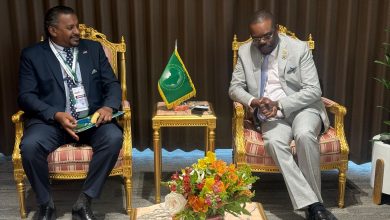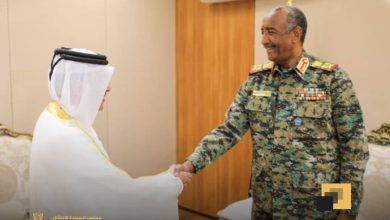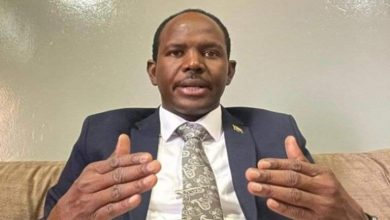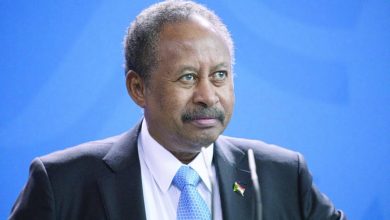Sudan’s War Was Decades in The Making (1)

Alan Boswell- Journalist/Political Analyst
Sudan Events
Summarized by Sumaya Sayed
In its post-colonial history, the country has veered from military dictatorship to democracy and back again, in a cycle replete with hope-filled popular uprisings and coups. Meanwhile, far from the riverine center, war has wracked much of the country’s periphery almost continuously. In the most recent episode, Sudanese peacefully took to streets throughout the country in late 2018 and 2019 to oust Bashir, who had grabbed power in a 1989 coup. Sudan’s generals stepped in to seize control. The result was a power-sharing arrangement, with Burhan as chairman of a transitional government and Hemedti as his deputy. Both promised to hand over the reins to civilians but in practice worked to consolidate their own hold, including through an October 2021 coup that derailed the transition, to the enormous frustration of both Sudanese and sympathizers abroad.
Yet the marriage of convenience began to fray. Hemedti and his paramilitary force, which grew out of the Arab-identifying militias Bashir armed became ever more ascendant. Eventually, the relationship reached a breaking point as Hemedti threw in his lot with a group of civilians after a December 2022 deal to restore civilian rule. As a dispute escalated over when and under which leadership structure Hemedti would integrate his irregulars into the army chain of command, both leaders made a show of force, flooding Khartoum with fighters.
The consequences will likely reverberate for decades. Khartoum is destroyed, and most Sudanese with the means to flee have done so. Many have nothing to come home to, with the RSF looting residential neighbourhoods and occupying homes, seizing what they consider the booty of war. The power vacuum at the country’s centre is felt elsewhere – most sharply in Darfur, where both the RSF and the army have mobilised tribal militias, exacerbating longstanding conflict between Arab- and non-Arab-identifying communities. Attacks by the RSF and associated militias have led to the death and displacement of thousands of civilians, mostly from the Masalit community, many of whom have fled across the border into Chad, leaving West Darfur under RSF control. South Sudan-aligned rebels in the south of the country are again on the march. Many suspect it is only a matter of time before trouble also appears in eastern parts of the country.
Unless there is a deal to reconsolidate state power, these conflicts will likely continue to spiral. If the Sudanese army is defeated or disintegrates, the country will be without a national army and in the full control of an unprofessional, violent paramilitary force with a pronounced ethnic cast. Moreover, the army may break apart, with sections of it fighting on. It is unclear in what form the Sudanese state (long controlled by the riverine centre) would survive in such circumstances. Meanwhile, the longer the war drags on, the deeper other parts of Sudan will sink into local strife, heightening the possibility of intervention by outside powers and further destabilising Sudan’s neighbourhood.
In order for peace talks to succeed, both parties will have to see an upside to reaching a deal, and outside actors will need to provide a coherent, well-supported negotiating track. Right now, it is unclear what the former might entail or even whether anything can compel the army and RSF to negotiate rather than fight. The latter has yet to come together.
The biggest question is what deal, if any, Hemedti might be willing to strike, given the RSF’s military momentum. Militarily, failing to strike a deal means the RSF would face the task of conquering the rest of Sudan, with all the risks that entails. The political reasons may loom even larger, relating to the extreme narrowness of Hemedti’s support base in Sudan and beyond due to RSF troops’ horrific behaviour since the conflict started and the force’s ethnic militia character. Even if he consolidates military control of Khartoum and much of Darfur, he will face a huge challenge in governing central, northern and eastern parts of Sudan, many of which are held by the army or army-aligned communities.
On the army side, although some leaders have begun signalling openness to talks, dynamics are difficult to parse. A major question is whether army negotiators will sue for peace to save Burhan and other colleagues at Khartoum headquarters or risk their eventual capture or killing at the RSF’s hands so as to continue the military struggle. Given internal fissures and the deep hostility toward the RSF, any settlement raises the risk of a split in the army, including the possibility that hardliners team up with Bashir-era Islamists to fight on. An RSF victory would likely leave no place for those Islamists, who might then face a difficult choice among negotiating surrender terms, battling on in a losing cause or seeking safe passage to a third country. But any political solution would need to include moderate Islamists, at least those not associated with the Bashir regime, given the risk of alienating such a large constituency and creating conditions for militancy to ferment.



